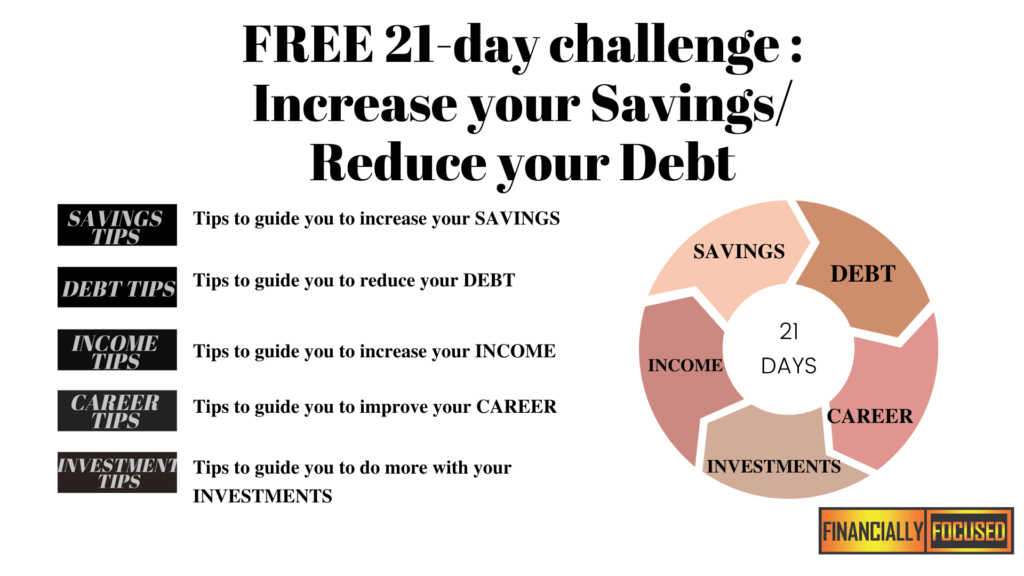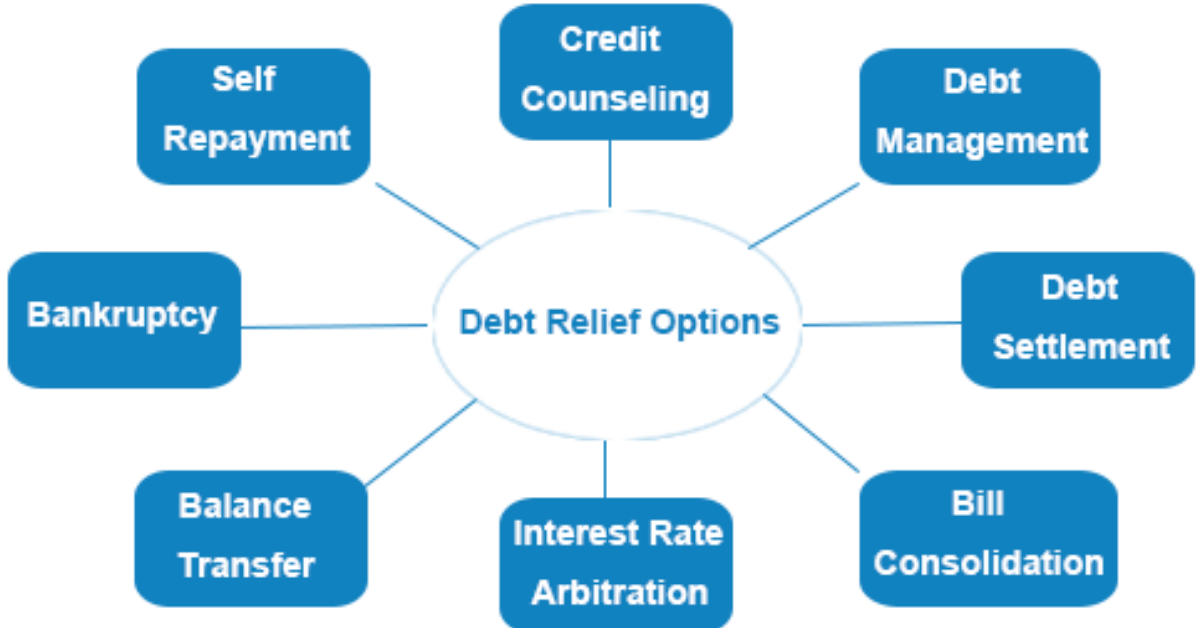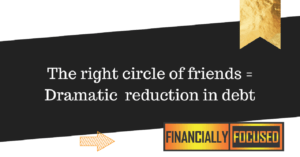Be sure to sign up for our FREE 21 day Challenge to increase your savings and reduce your debt!

For many of us, our monthly salary is our #1 earning pathway.
I learned that the hard way in my corporate life when I listened to my manager explain that she was of the view that people shouldn’t earn more than a certain amount of money and it was her job to block people who were “too ambitious”. That always resonated with me that a person would actively lobby to stop other people from progressing.
And that is one of my motivating factors for launching my Financial Success Academy. With lifetime access and over 30 courses, I wanted to be sure that my clients had the support to rise above limited thinking.
http://https://www.youtube.com/watch?v=eu7ZmPkL0IE
That said, many of us who want to increase our savings and reduce our debt need a plan to manage how we maximize our salary to finance the lifestyle we want.
Let’s be real. The salary takes care of everything and when the monthly salary is exhausted, we are financially drained.
However, what if a shift in mindset could make a difference in how you manage your money?
In this 21 day challenge to increase savings and reduce debt, the way we categorize our earning pathway is critical to achieving our goals.
In this conversation, we are going to look at how to 🎯maximize your salary based on the way it is classified. Then we are going to look at 🎯debt strategies.
KNOW YOUR INCOME TYPE
When we say classify your income, its not about how you earn your money, but the frequency and the reliability of the income. See the difference? There are many different types of income, but really two ways the money is paid – guaranteed (like a salary) or variable (you get paid when you meet a performance target).
Essentially, if your income is on commission or performance-based, you are like a stock which price can go up or down. That means you need to create not only an income plan but a savings plan that accounts for the shifts in your income.
If your income is steady and the same each month, then you are like a bond. That means, no matter what (except being fired), you are able to plan for the same dollar figure.
TAKEAWAY – If your salary is like a bond, that means you should focus on building out your income plan to help you plan for the impact of inflation on savings.
Inflation is the rise in the cost of goods and services. Most people have seen inflation in action: Prices go up over time. That’s why most things cost more now than they did when you were younger. Staying ahead of inflation may be an important reason to invest your savings in assets that offer potential growth to counteract its effects.
YOUR JOB PAYS LIKE BOND – A FIXED AMOUNT EVERY MONTH
Strategy #1 – With a bondlike job, the long-term value is stable. You get paid every week, 2 weeks or monthly. So your income is fixed, just like a bond investment. There is little income fluctuation from year to year outside of cost-of-living inflation adjustments, as well as an extremely low risk of being terminated.
Income generally continues in a stable manner until the individual decides he or she would like to retire and no longer work, or perhaps must cease employment due to a change in health.
So how can you improve your savings rate with a bond-like income? The most critical action is to decide on which assets you want and then build a team to help you make the right decisions. Here is a list of assets to direct your excess savings to.
Equity investments to consider
- Commodities and commodity-producer equities (energy, materials, etc.)
- Value stocks
- US and international stocks
- Real estate investment trusts (REITs)
Inflation-resistant fixed income investments to consider
- Treasury Inflation-Protected Securities (TIPS)
- Shorter duration bonds
- High-yield bonds
- Investment-grade bonds such as corporate bonds or mortgage-backed securities (which typically provide higher yields than Treasurys of similar duration)
- International bonds
Other investments to consider
- Gold
- Real estate
YOUR JOB PAYS LIKE STOCK – A DIFFERENT AMOUNT EVERY MONTH
Strategy #2 – If your income is like a stock, then you are not on a fixed income. By contrast, those climbing the corporate ladder, individuals who are self-employed and entrepreneurs launching their own businesses have a human capital value that behaves much more like a volatile stock. It can go through abrupt changes, up or down, as “news” occurs. Such news might include a big job promotion, landing a key new client, or, alternatively, being demoted or getting fired.
If you are earning on a commission or any other variable income, then consider this income budgeting plan. Here is how you break it down to manage your money. Each month, when you get paid ask yourself if you:
✔paid yourself a salary based on your expenses on the first of the month;
✔put all of your earnings into savings;
✔paid your bills according to your zero-sum budget, meaning each month you assume you have zero left and you are starting from scratch;
✔paid your savings and debt repayments; and
✔finished the month with all bills paid and almost nothing in your checking account.
So ask yourself – is your earning like a bond or a stock and how does that impact your plan to increase savings and reduce debt?
🎯Invest in Yourself
Regardless of whether your income is stable or fluctuates each month, by far the best investment you can make to be prepared for an uncertain financial future is an investment in yourself. One that will increase your future earning power. This investment begins with quality education and continues with keeping skills up-to-date and learning new skills that will match those most needed in the not-too-distant future. Being able to stay on top of a business’s changing needs may not only help to inflation-proof your salary but also recession-proof your career. The 100 Page Career Planner will help you plan a productive, purposeful and profitable path to the lifestyle you desire. Check it out here. This beautifully crafted, 100-page planner is the must-have resource for those who want supportive journal prompts that will keep you productive, prepared, purposeful in plan to build out your career success. It’s like having your own private career counselor that you’ve always wanted!
Here are strategies for you to consider.
REDUCE YOUR DEBT
So now we are in a place to analyze our income-earning pathway.
How does this impact our strategy to reduce our debt?
Debt triggers negative feelings because your first experience with debt likely was when it was tied to something that didn’t produce income. You worked overtime on the weekend in order to make your Honda payment. You made sacrifices to pay credit card finance charges on a Morton’s Steakhouse dinner that you splurged on six months earlier. You paid for your car — your car never paid you.
But if you use smart debt tied to an income-producing single-family home or eight-plex, now you’re on top of debt — not trapped beneath it.
So consider these eight debt strategies:

Debt counseling – this is where you sit down with a financial counselor to get your debt situation analyzed and the options explained to you. Also, this is where your behavior that brought into debt is analyzed and recommendations are given. Consider this a six-month investment in time and counseling fees. Of course, there are consumer counseling agencies that can offer debt counseling for free.
Debt management – this is where a plan is offered to the bank on your behalf to open negotiations to get the debt payment in your favor – that is lower terms.
Debt settlement – this is where you negotiate with the bank to settle the debt for a lower amount.
Bill consolidation – banks love this option because essentially, they collect fees to issue another loan to clear off the smaller loans that have added up.
Interest rate arbitration – here you take control of your interest rate! In this strategy, the goal is to find a lower-cost loan option to pay out your higher interest charges on existing loans. This works excellent if you have existing collateral such as a house or newer car that can be used to work for you.
Balance transfer – this strategy requires research. The goal here is to find lower interest (or a grace period with no interest rates) on your credit cards and then transfer the balance from one bank to the next.
Self repayment – when your income improves and you have the discipline to manage your debt effectively, self repayment allows you to clear off your debt quickly.
Insolvency – this option is what happens before bankruptcy. Usually offered by government consumer agencies, insolvency is where you enter into private negotiations with your creditors and restructure your debt to give you breathing room.
Bankruptcy – this is where you enter into a legal arrangement to declare that you are unable to pay your debts. In some jurisdictions, you have bankruptcy on your records for 7 years. In other jurisdictions, you are barred from sitting on company board of directors. So, if you are taking this option, it is best to consult an attorney.
As you consider debt in your overall financial strategy, you will need to understand it and study it. Using “good” debt is borrowing that helps you build long-term wealth. “Bad” debt, on the other hand, can harm your credit and deplete your finances. The difference comes down to two factors: risk and cost. I would equate bad debt with taking on too much risk without the ability to repay it.
Credit card debt is probably the most common example of bad debt. The average card balance is over $6,000 per person in the United States and it’s considered to be a form of bad debt because of its high-interest rates. Car loans are another example of bad debt because they’re used to borrow money to buy an asset that depreciates. In general, borrowing to support ongoing living expenses is not a good use of debt.
Good debt is debt that’s used to pay for something that has long-term value and increases your net worth (such as a home) or helps you generate income (such as a smart investment). Unless you take on good debt, you may not be able to buy a home or get a college education—all investments that can enhance your income or net worth.
Managing debt responsibly also helps you build a good credit history. Since your credit scores can be a factor in everything from renting an apartment to getting a job, a good credit score can open lots of doors.
Your continued ability to earn money — regardless of the currency denomination — remains your greatest asset. If you are ready to create a financial plan to fund the lifestyle you desire, let me invite you to the Financial Success Academy. the lifetime membership gets you to access to a:
- Library of In-depth Courses and On-Demand Videos
- Step-by-step Money Roadmap
- Weekly Financial Planning Prompts
- Printables, Planners & Workbooks
- Supportive Online Community
- Monthly group financial coaching
…and much, much more



